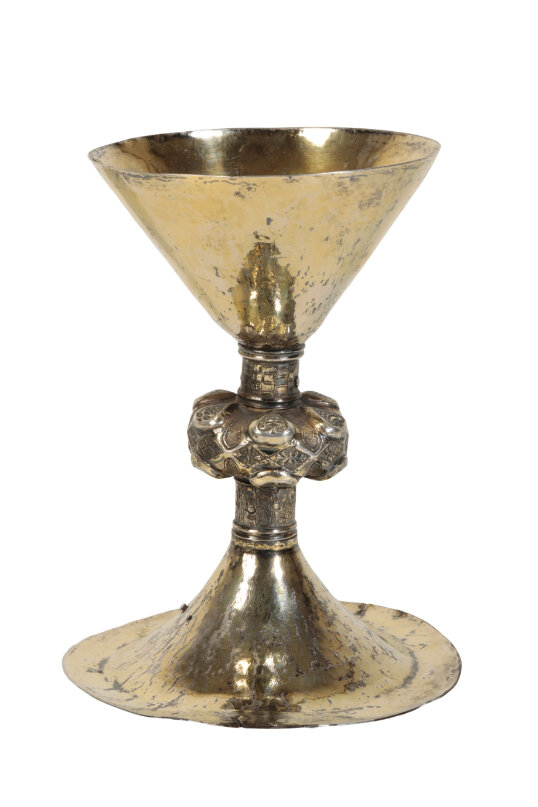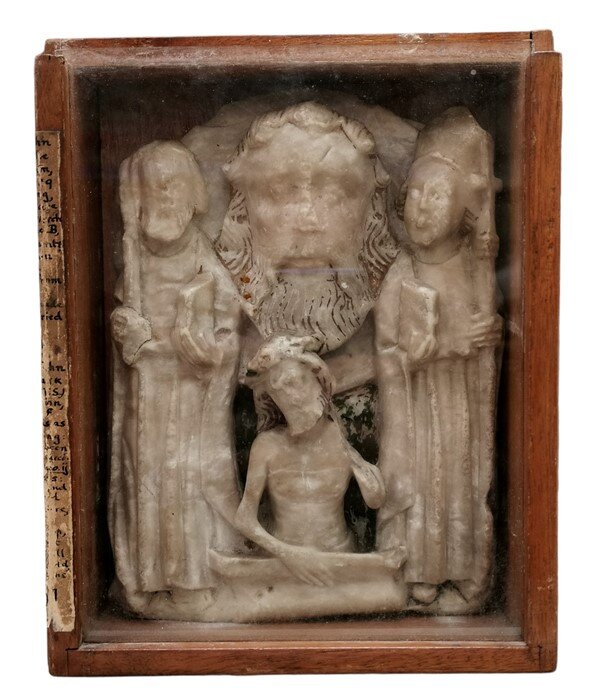Here is another in the occasional series of pieces by my friend in England, Andrew Marlborough, who worked in the art gallery business for 10 years before joining seminary in England, and highlights pieces coming up for auction. The hope is as much to encourage people to start considering looking at auction houses as possible sources for art and sacred vessels that might still serve their religious purpose.
Andrew writes: Catholic sacred art which survived penal times is of the greatest importance. It is the material expression of the endurance and even flourishing of the faith under persecution. Among these objects, sacred vessels used in the Holy Sacrifice of the Mass are surely the most significant. Some of you may have read my previous article which included an Irish silver recusant chalice, used by Fr John Barnewall to celebrate Mass during penal times in Ireland in the late 17th and early 18th century.
Another exceptionally rare Irish chalice is appearing at auction on July 2nd at Duke’s in Dorchester in Dorset, England. This example was made in the late 15th century, shortly before the Reformation, probably in Cork, and would surely have been used during times of persecution. It is incredibly rare for such a piece to come to auction with comparable chalices in major museum collections. The pre-sale estimate is £5,000-10,000 and it may well go beyond that. For someone with the funds, this is a great opportunity to own an important piece of Catholic history, and perhaps to enable it to be used again one day in Holy Mass.
In April this year, a 17th-century English silver recusant Pax appeared at auction. This object was used at the kiss of peace in Mass. It is inspiring to know that this would have been kissed with great devotion by persecuted Catholics longing for the peace of Christ in the midst of great suffering. A more affordable but nonetheless important piece of sacred art, it sold for £220 (plus commission).
Before the Reformation, Nottingham in England was the center of a thriving school of alabaster carving which was famous throughout Europe for its quality. Many of these objects were destroyed but do appear at auction from time to time. A good example was this small piece depicting the Holy Trinity with Saints, which was a popular theme of the school. It sold for £6,000 (plus commission).
Andrew Marlborough is a 5th-year seminarian for Plymouth Diocese in the UK, studying at Allen Hall in London. Before entering seminary he worked for 10 years in the auction and art gallery business.





